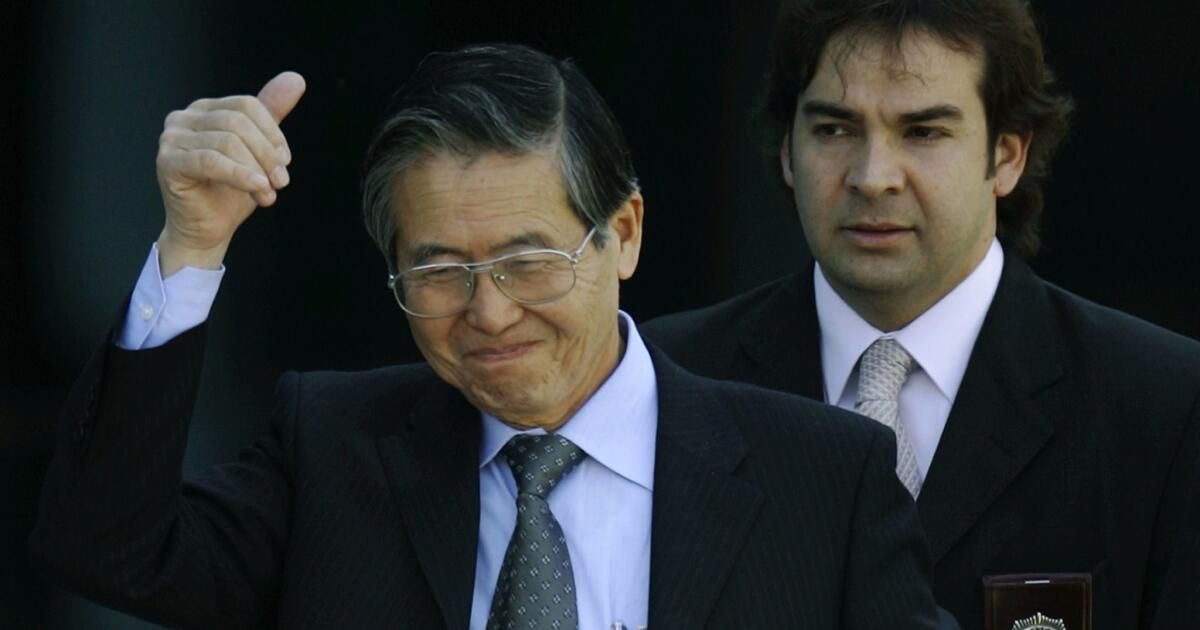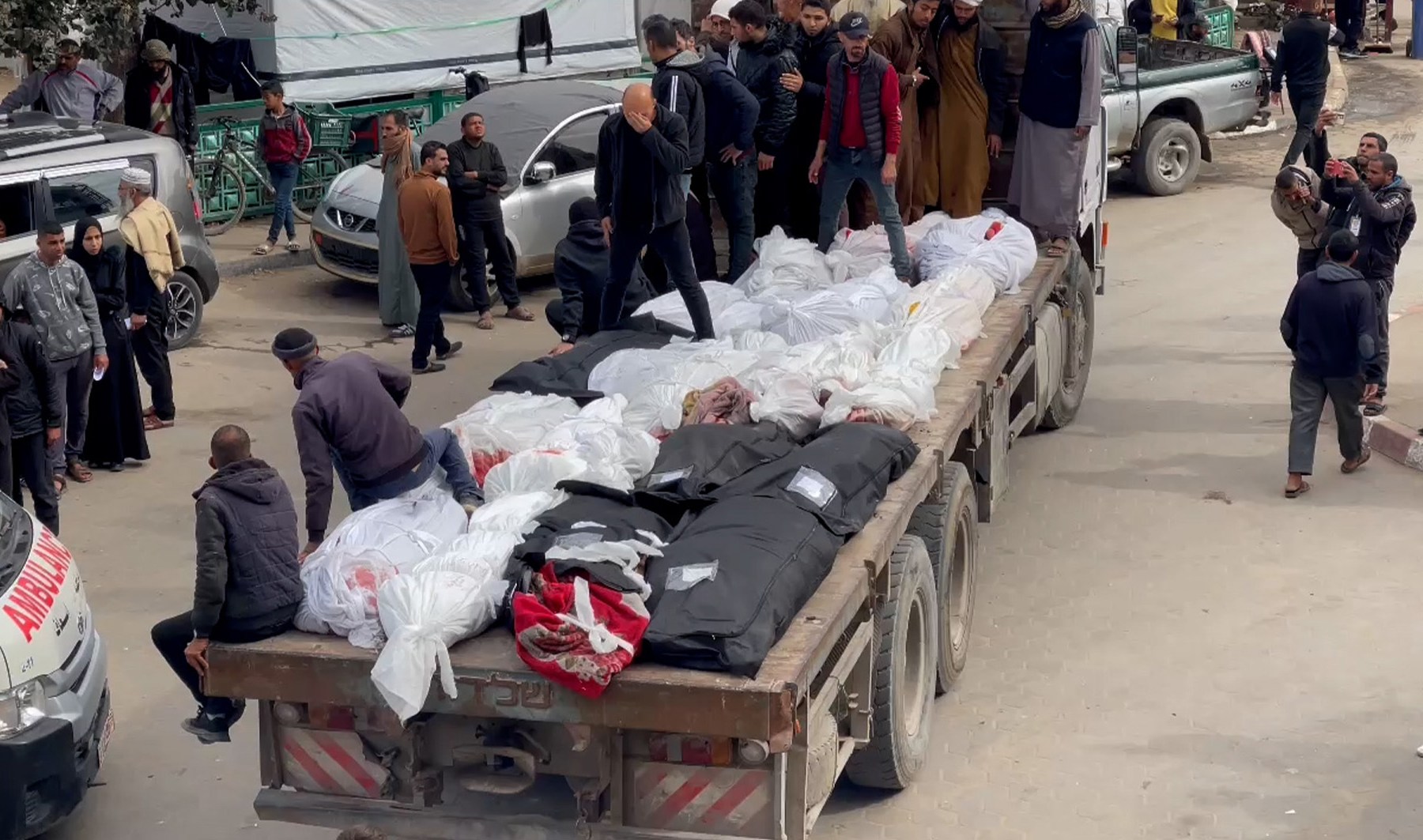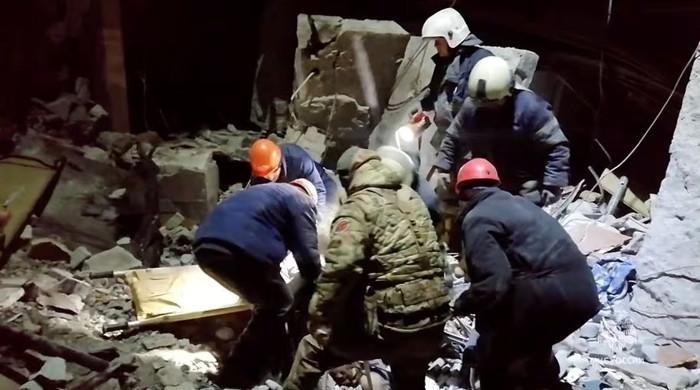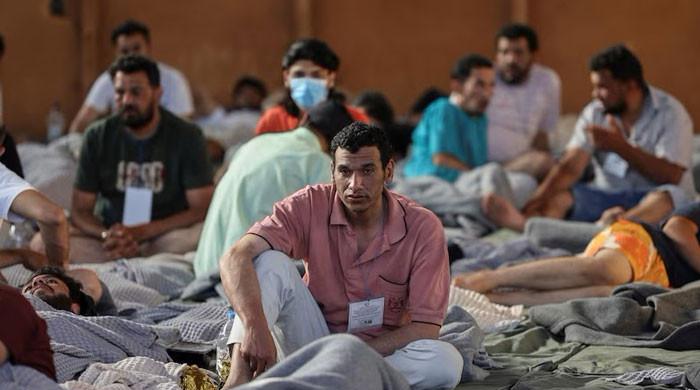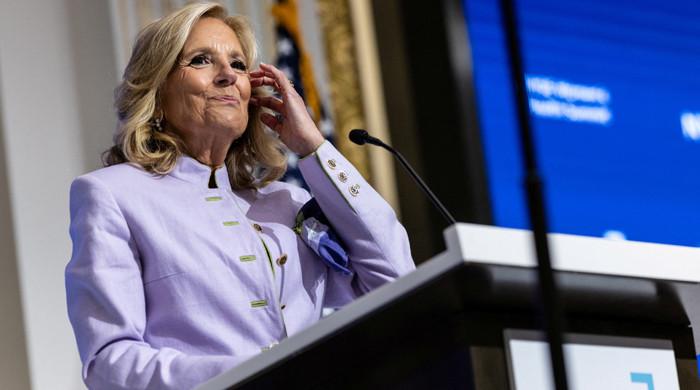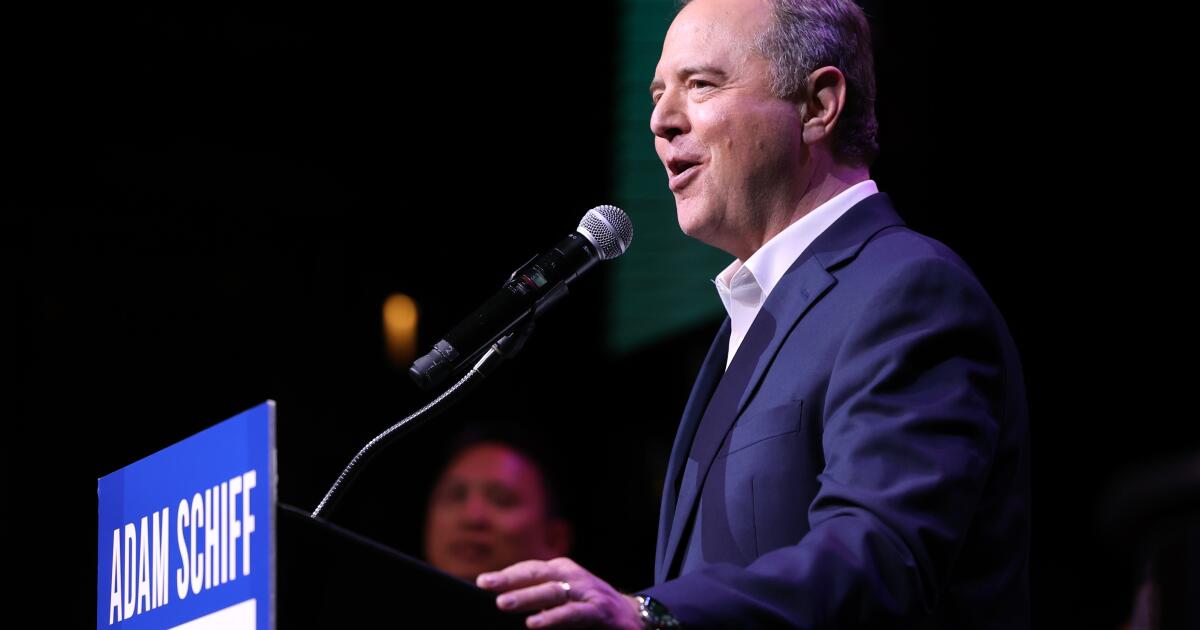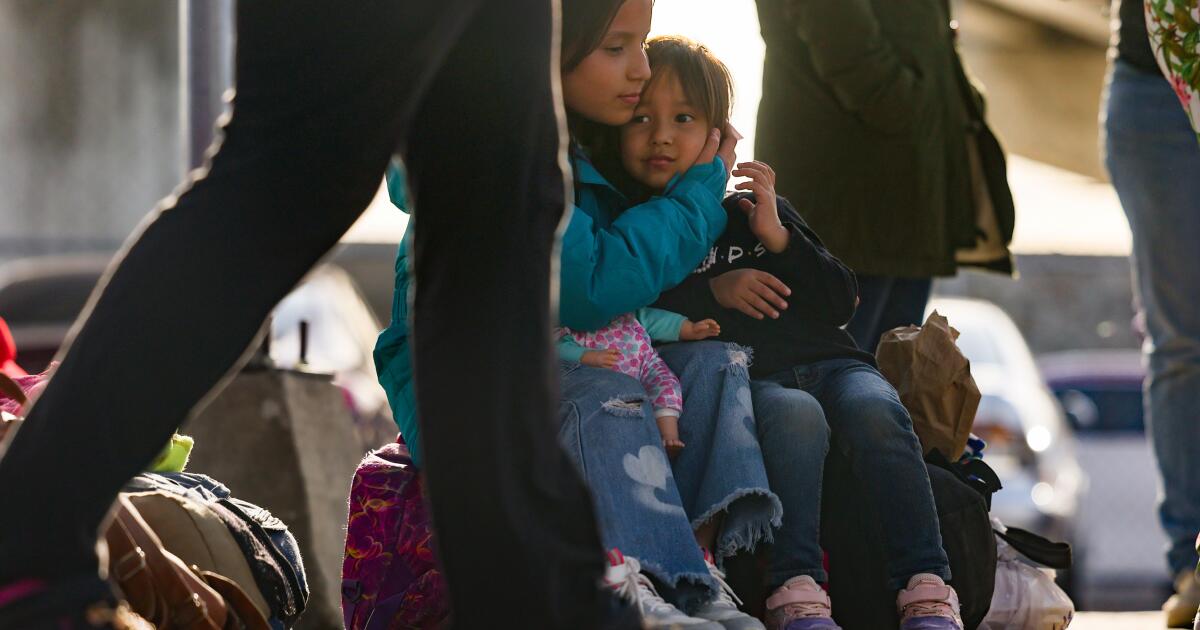Alberto Fujimori, the once-popular Peruvian president credited with rescuing his country from economic chaos and leftist insurgency but later disgraced and sentenced to prison on human rights abuse charges, has died.
His daughter Keiko announced his death on Wednesday in a post on the social media platform X.
Fujimori, who had been pardoned in December, died on Wednesday in the capital Lima, his daughter announced. He was 86.
Fujimori, the first man of Japanese descent to become leader of a Latin American nation, was a university administrator who rose from nowhere to win the presidency in 1990. Re-elected in 1995 and 2000, he resigned in November 2000 after ignominiously fleeing to Japan following the emergence of videos showing Vladimiro Montesinos – Fujimori’s trusted intelligence czar – bribing other politicians.
An attempt to return failed when he was arrested in Chile in 2005, having arrived there from Japan. Chile extradited him to Peru, where he was tried and convicted twice: in 2007 on charges of illegal trespassing and again in 2009 for corruption and human rights violations in connection with two mass killings. He was sentenced to 25 years in prison in the latter trial.
When Fujimori took power in 1990, Peru was the basket case of Latin America: hyperinflation was exceeding 2,000%, the Maoist insurgency Shining Path controlled half the country, Peru had defaulted on its foreign debt, and the country produced more coca (the raw material for cocaine) than any other country.
With harsh and unrelenting measures, Fujimori confronted the rebels, greatly reduced coca cultivation and instituted economic reforms that put Peru on the path of growth that made it one of the fastest-growing economies in Latin America at the time. His assault on the Japanese embassy in 1997 to free 72 hostages held by terrorists burnished his tough-guy image.
But in the end, Fujimori fell victim to his own ego and his belief that he was “Peru’s indispensable man,” said Shane Hunt, an emeritus professor of economics at Boston University and an expert on Peru. An unabashed authoritarian, Fujimori dissolved Congress and suspended the constitution in 1992 to assume the powers he said he needed to save the country from ruin.
“He castrated any public agency that might put a check on his power,” Hunt said. “He corrupted the promotion process in the military to put his favorites in key positions. He kept judges on interim appointments to remove them if they issued unfavorable rulings. He tried to accumulate all power in his own hands.”
Fujimori was widely accused of approving human rights violations and of placing his complete trust in Montesinos, a shadowy figure who was later jailed on charges of embezzlement, bribery and arms smuggling. The human rights charges that landed Fujimori in prison were related to a de facto death squad that prosecutors said he had authorized.
His daughter Keiko, one of his four children, served as part-time first lady in her father's government and ran unsuccessfully for president in 2011. After her defeat, she led a campaign for her father's release, saying he should not be allowed to die in prison. His son Kenji is a former congressman who was ousted from office in a bribery scandal.
Fujimori was born on July 28, 1938, in Lima, the son of humble Japanese immigrants who owned a tire repair shop. His parents had emigrated to Peru four years before he was born and were part of a wave of Japanese immigrants that began in the 1890s and who arrived mainly to work as day laborers on the sugar plantations of northern Peru.
He was an unlikely politician. A graduate in mathematics from the University of Wisconsin, he was an agronomist and president of the National Agrarian University with no electoral experience when he decided to oppose the center-right novelist Mario Vargas Llosa in the 1990 elections.
Fujimori capitalized on voters’ dislike of politicians and the image of efficiency and honesty held by Peruvians of Japanese descent. Raised a Catholic, he won support from evangelical Christians and lower-middle-class voters with his forthright speech and optimistic approach, and he played on Vargas Llosa’s identification with the country’s wealthy white elite and the writer’s ominous promise of a “shock” austerity program to rescue the country’s ailing economy.
Against all odds, Fujimori won with a 60% majority and soon adopted many of the economic shock measures he had criticized Vargas Llosa for advocating. He deregulated industries and eliminated subsidies on gasoline and other goods and services in hopes of reversing inflation.
As daunting as hyperinflation was when he took office, so too was the security lapse and the growing power of the Shining Path guerrilla group, which embraced Maoism. He countered the rebels with a massive public works program, establishing a state presence in remote villages that the government had largely ignored, building post offices, roads, clinics and new schools at a frenetic pace.
He armed peasants to defend themselves and dealt a blow to rebel morale in 1992 when he captured Shining Path leader Abimael Guzmán.
“He turned his back on Lima, the capital, and spent 10 years in a helicopter visiting villages. He wasted no time on ideology and found practical solutions to the economic and security emergency he inherited,” said Richard Webb, a Lima-based analyst who twice served as president of Peru’s central bank.
The 1992 “self-coup,” as some observers called Fujimori’s dissolution of Congress, suspension of the Constitution and purge of the judiciary, was roundly condemned by the U.S. government and Peru’s neighbors. Military forces also initially occupied radio, television and newspaper offices and arrested union and political leaders.
Still, his image as a hard-working, no-nonsense leader won over most Peruvians. To paraphrase a Western diplomat, Fujimori sensed that Peruvians no longer believed democracy was worthwhile because of the chaos the country had descended into. In 1995, he easily won re-election against former UN Secretary-General Javier Perez de Cuellar.
In 1997, Fujimori led a commando raid on the Japanese embassy, where guerrillas had held 72 hostages captive for four months. Fourteen rebels, two soldiers and one hostage were killed in the operation, but the bloody rescue may well have marked the high point of his popularity.
After removing Supreme Court justices to ensure he could run for a third term, Fujimori saw his popularity begin to wane as human rights concerns grew, economic benefits failed to reach those who needed them most and his authoritarian style began to fray.
The president's prestige took a hit when video footage emerged showing Montesinos tapping the phone of Fujimori's electoral opponent, Perez de Cuellar. Fujimori won a third term in 2000, defeating future president and World Bank economist Alejandro Toledo. But after reports of voting irregularities spread, many regional leaders shunned his inauguration festivities.
Fujimori faxed his resignation in November 2000 during a trip to Japan, shortly after Montesinos fled the country. The president's hasty exile that followed baffled many of his supporters and gave rise to speculation that incriminating videos of him also existed.
Japan rejected Peru's extradition request for Fujimori, who had Japanese citizenship. Despite facing 500 charges at home, Fujimori attempted to return to politics in 2005 by returning from exile. Chilean authorities arrested him upon arrival and extradited him to Peru in 2007 to face charges of human rights violations, murder and kidnapping.
His critics said Fujimori's return was a gamble that Chile would not extradite him and that he could use Peru's neighbor as a launching pad for another presidential bid. But his daughter told The Times in a 2008 interview that her father expected to be arrested and hoped that during the extradition process many of the pending charges against him would be dropped, which turned out to be the case.
“When I was studying for my master’s degree in New York, he called me to tell me he was on a plane and there was a good chance he would be arrested,” his daughter said. “But I’ve never heard him so happy.”
After a marathon 15-month trial, Fujimori was found guilty in April 2009 of ordering kidnappings and two massacres that claimed the lives of 25 people in 1991 and 1992. He was sentenced to 25 years in prison.
In 2017, Fujimori was granted a presidential pardon due to his poor health, but years of legal wrangling followed. In December, Peru's Constitutional Court ruled in favor of the humanitarian pardon and Fujimori was released.
Kraul is a former Times correspondent. Former Times sTaff writer Steve Marble and the Associated Press contributed to this report.

